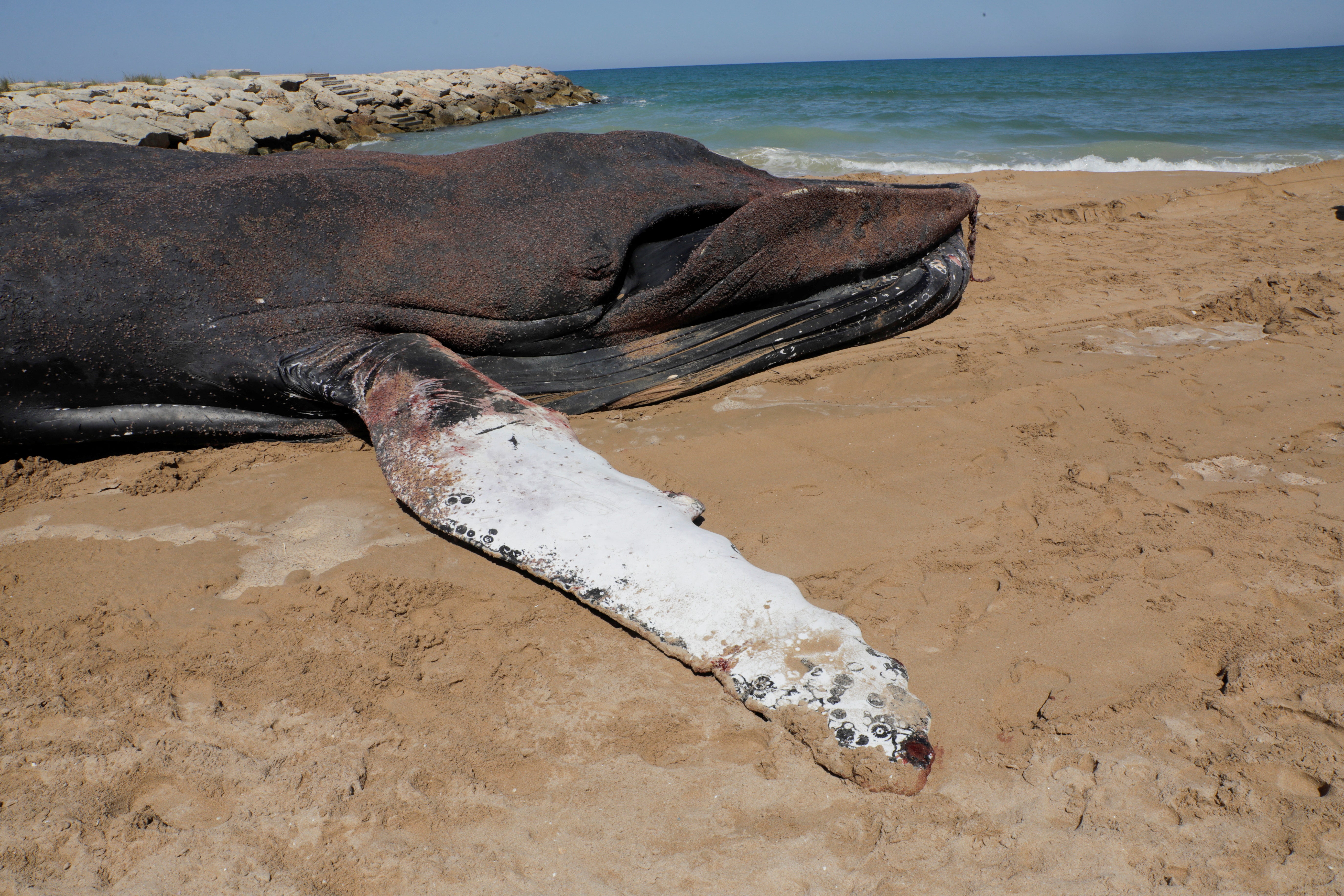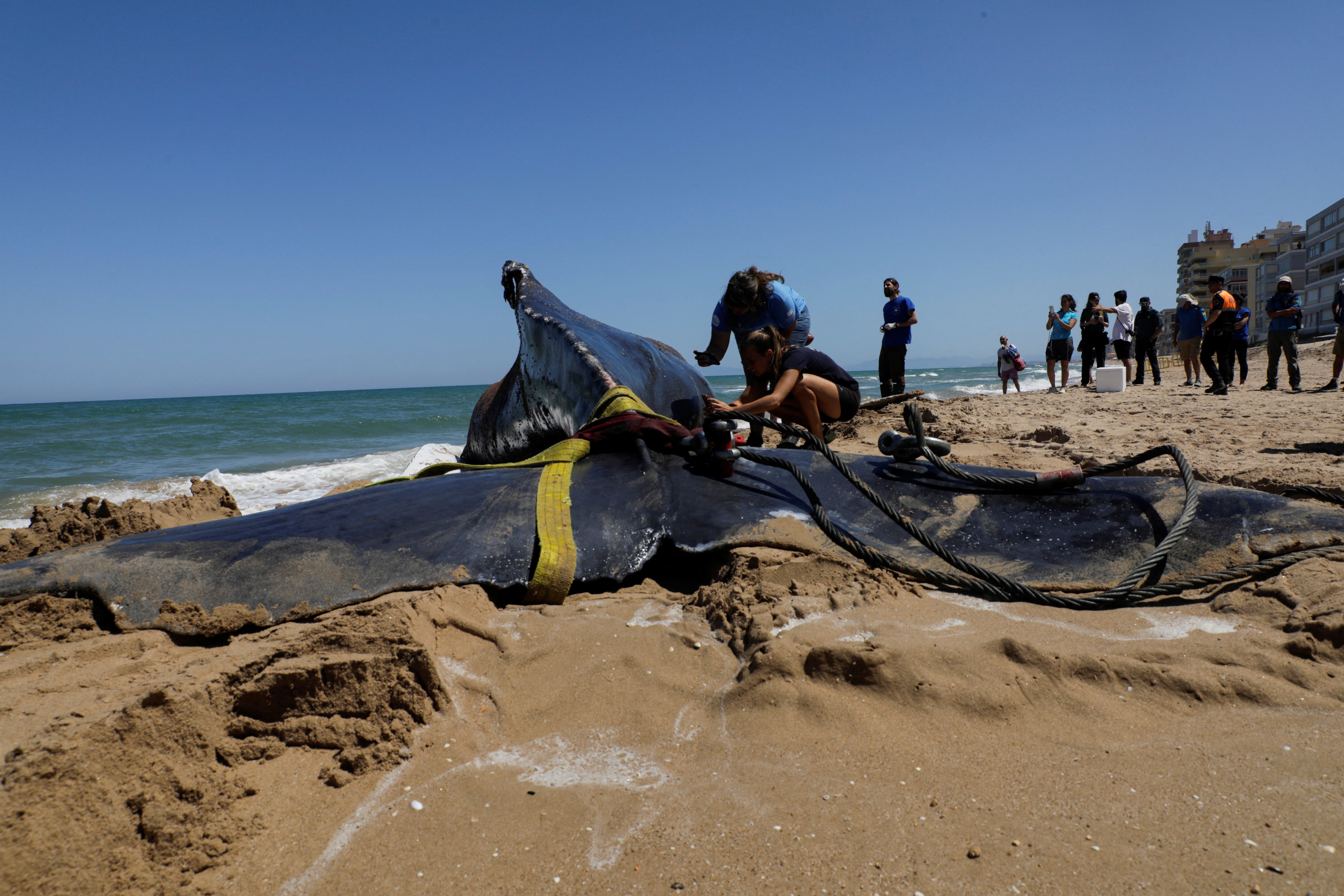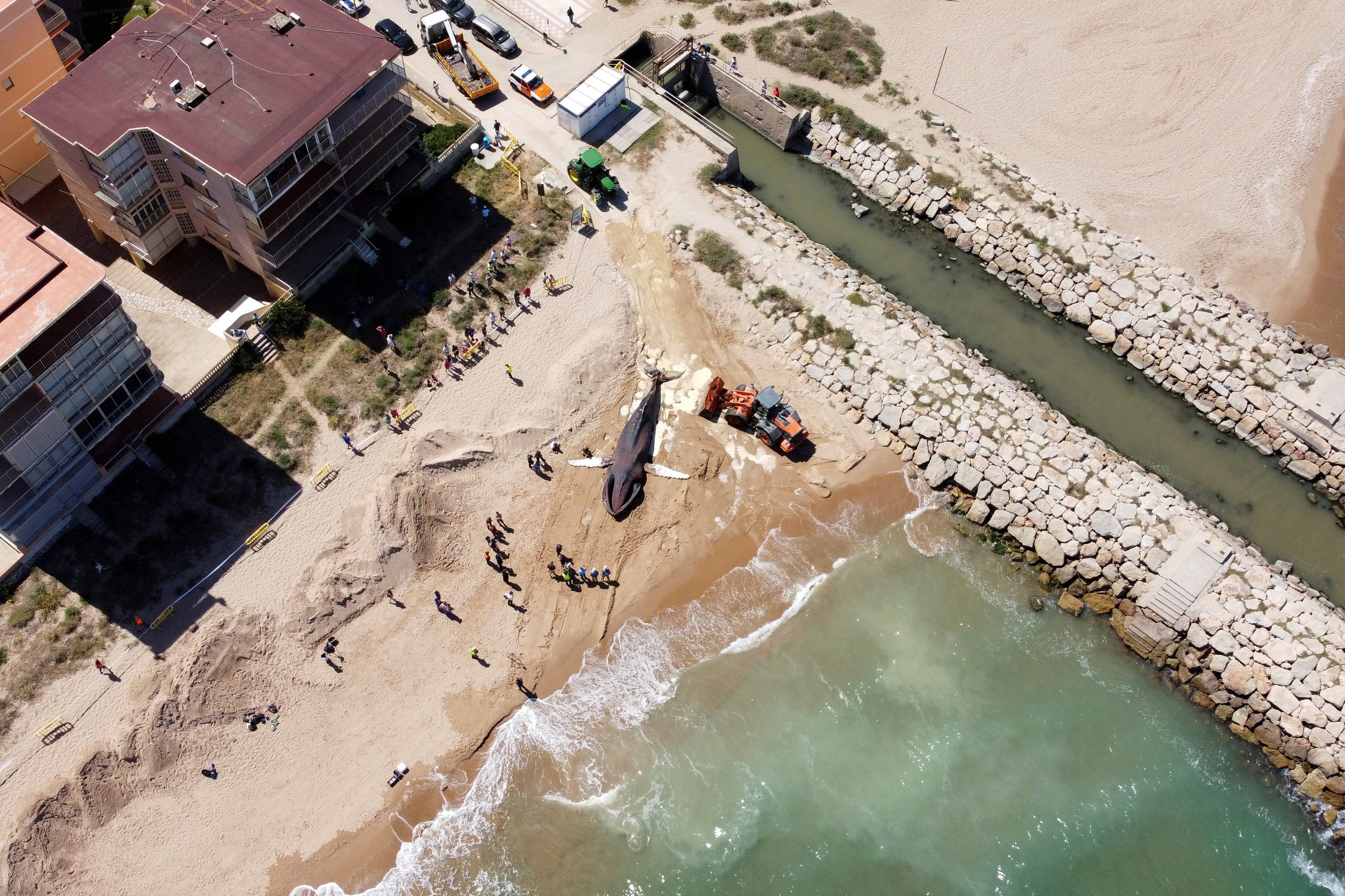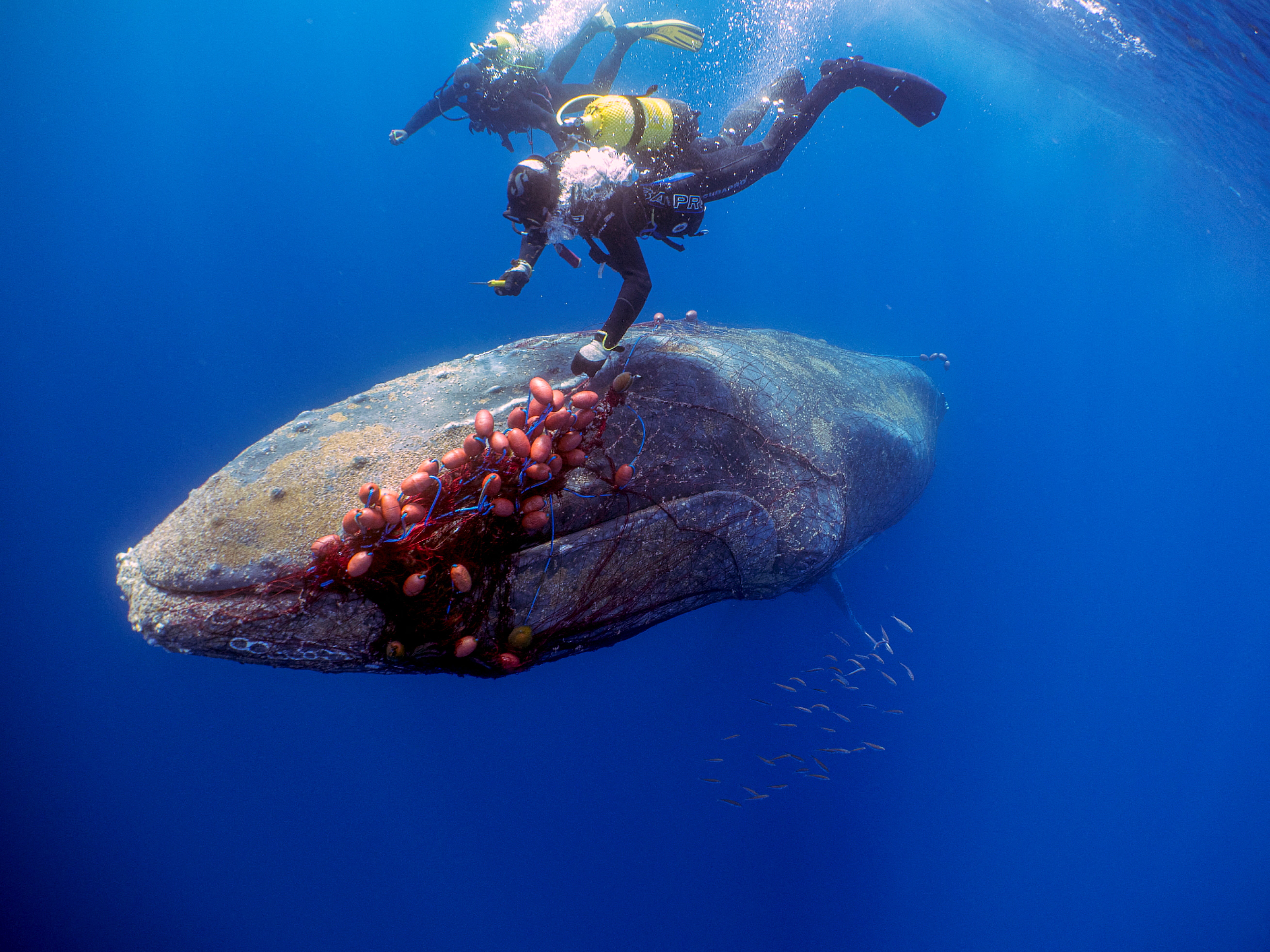Rare humpback whale that ‘thanked’ rescuers who freed it from illegal net dies after beaching week later
‘It is horrible. This has been really depressing,’ diver who rescued whale from illegal fish net says
Your support helps us to tell the story
From reproductive rights to climate change to Big Tech, The Independent is on the ground when the story is developing. Whether it's investigating the financials of Elon Musk's pro-Trump PAC or producing our latest documentary, 'The A Word', which shines a light on the American women fighting for reproductive rights, we know how important it is to parse out the facts from the messaging.
At such a critical moment in US history, we need reporters on the ground. Your donation allows us to keep sending journalists to speak to both sides of the story.
The Independent is trusted by Americans across the entire political spectrum. And unlike many other quality news outlets, we choose not to lock Americans out of our reporting and analysis with paywalls. We believe quality journalism should be available to everyone, paid for by those who can afford it.
Your support makes all the difference.A 46ft long humpback whale that ‘thanked’ divers who rescued it from an illegal fishing net has died just days later.
The 30 tonne mammal was spotted three miles off the coast of Mallorca on May 20, caught in a red net that left it unable to open its mouth.
A team of divers from Palma de Mallorca’s Aquarium helped free the huge creature before sending on its way. The group said the whale had appeared to give what looked like “a little thank you sign” before swimming off.
But a week later on Thursday 27 May the same creature washed up on a beach in Valencia, Spain, some 190 miles away.


Specialists from the Oceanography Foundation, who examined the whale in the town of Tavernes de la Valldigna, said it was extremely weak and had several cuts to its dorsal fin.
They decided the massive animal would not survive a return to the sea, and it died soon afterwards.
Jose Luis Crespo, head of conservation for the foundation said: “We would have caused more injuries and made its condition worse, and it would possibly have been back on the sand the next day.”
Marine biologist Gigi Torras, 32, who was a part of the original rescue group, was saddened by the news.
“It is horrible,” she said. “This has been really depressing,”

Descriving the previous rescue Ms Torras, who owns the Albatros diving centre, said crew members saw the humpback whale calm down after an initial stage of nervousness.
“The first 10 seconds she got a bit nervous, you know, like bubbles everywhere.
“But then, call me crazy, I think she knew we were there to help her and she just relaxed and we started working from the front of her mouth backwards.”

The United Nations had banned drift nets, nicknamed “Walls of Death”, 30 years ago for presenting a grave threat to aquatic life.
Practically invisible to sea life, drift nets float from a cork line and reach down to a depth of 50ft to catch fish – but they can also kill a range of marine life, including bigger underwater mammals like whales, seals and dolphins, as well as sea birds.
“These nets have been illegal for three decades.” Ms Torras said. “They do not target anything but just capture everything. I hope this opens people’s eyes to the damage they are causing to the oceans.”

Join our commenting forum
Join thought-provoking conversations, follow other Independent readers and see their replies
Comments